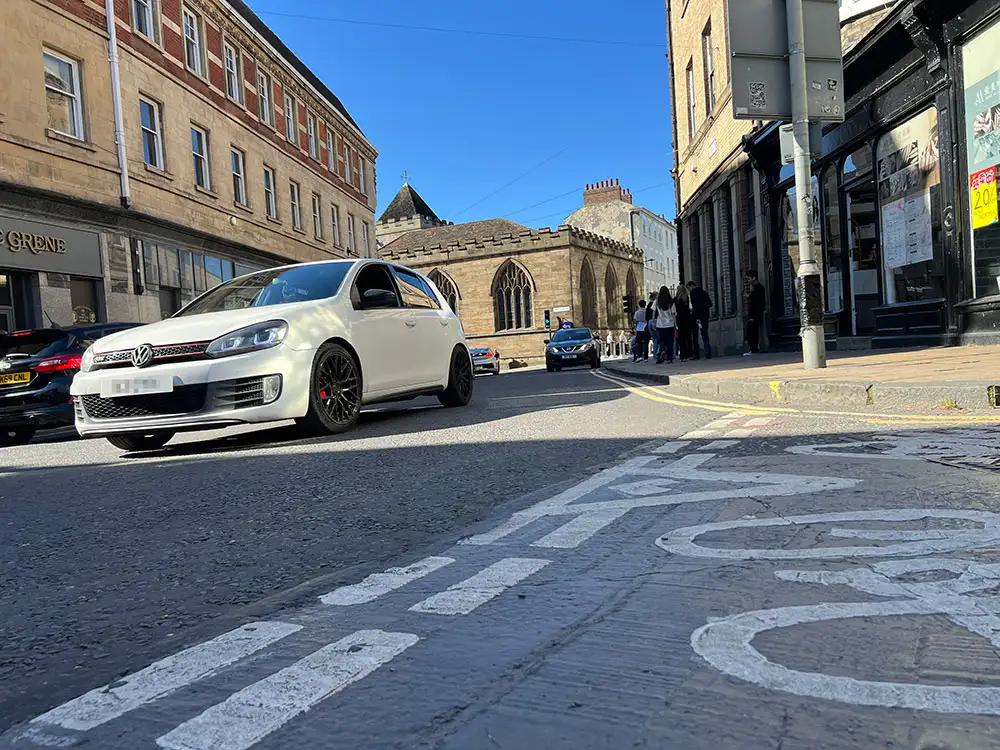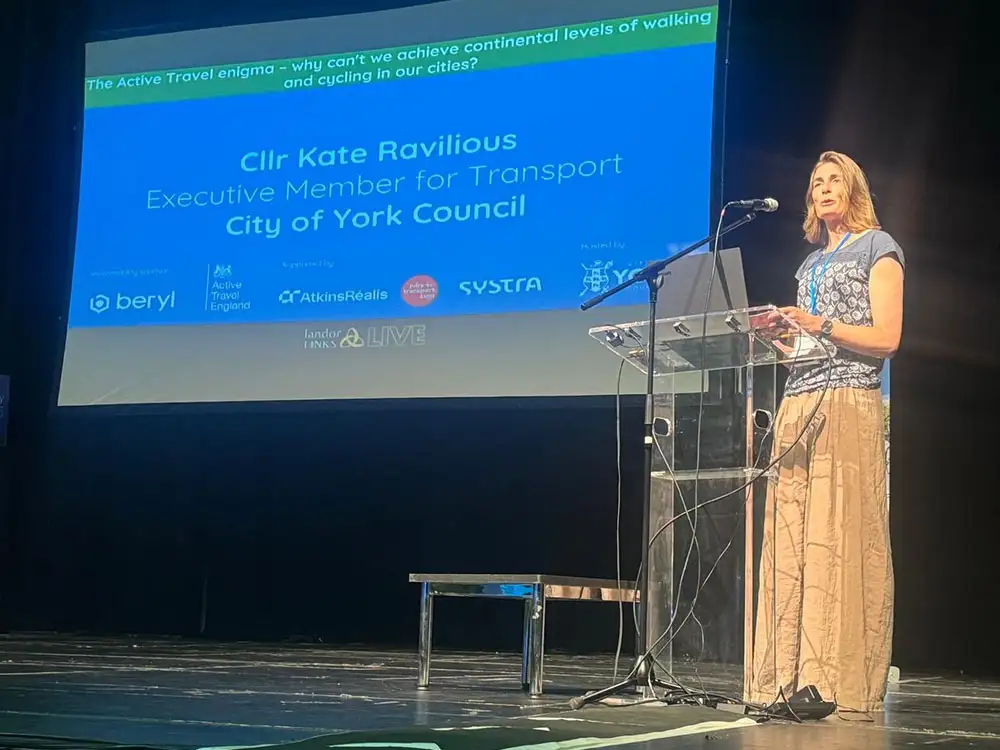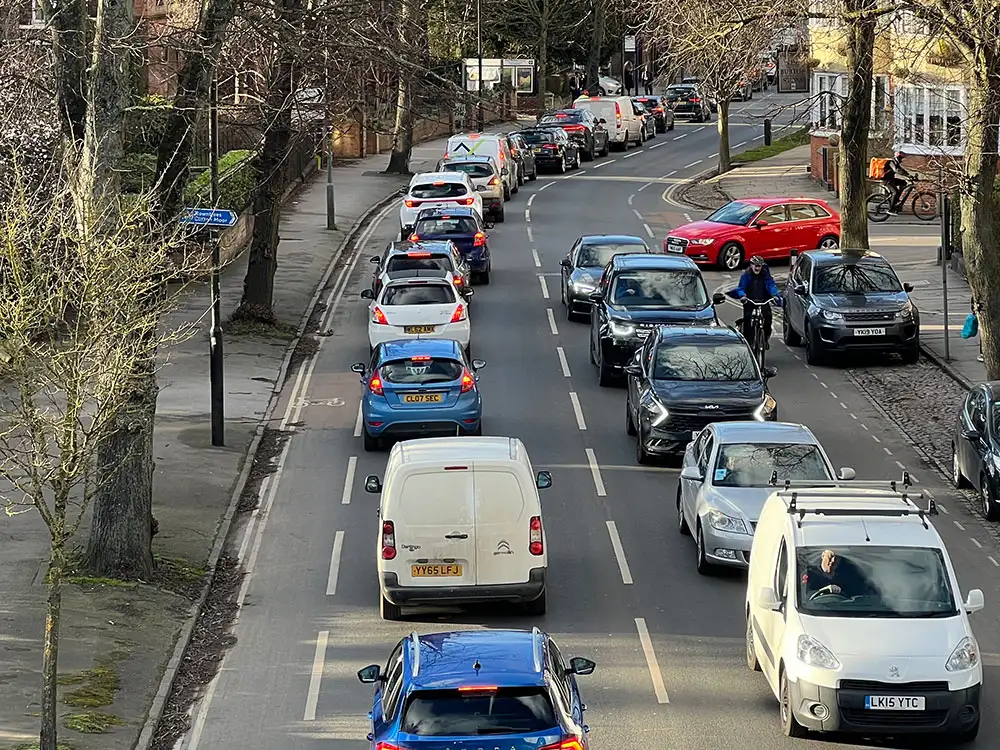City of York Council has ruled out a congestion charge for the city – “but everything else is part of the toolbox,” the authority’s transport lead has said.
And she said that they needed the “carrot alongside the stick” when it came to reducing traffic congestion.
Cllr Kate Ravilious told the Active City York 2025 conference a congestion charge was not among those being considered to try and cut car use locally.
The council needed to do more to win people over with future measures following the recent backlash against parking charge hikes, she said.
Together with the council’s public health director Peter Roderick, Cllr Ravilious spoke to the conference about the council’s wider efforts to promote walking, wheeling and cycling and public transport use.
The council’s Local Transport Strategy which is guiding the work aims to cut car use in York by a fifth by 2030.
Cllr Ravilious told the event plans to achieve the goal include the creation of a sustainable transport corridor.
Buses will be prioritised on the route, which is set to run from York Station to Tower Street via the Ouse Bridge, over all but essential private car journeys.

The transport executive member added the council had also aimed to use hikes in parking charges at council-run car parks to try and discourage car use.
Charges were increased to £4.85-an-hour for the first two, £5.30 on Fridays, Saturdays and during events, across the city as part of budget measures for 2025/6.
But rates outside the inner ring road, including at the Bishopthorpe Road car park, were lowered to £3-an-hour following a backlash from residents, traders and opposition councillors.
On street parking rates were also temporarily lowered in Micklegate and Priory Street and the council has committed to review the effects of the charges going forward.

Cllr Ravilious told the conference at the Barbican on Thursday that the reaction to the move highlighted the need for the council to take people with them when enacting transport changes.
The executive member said: “We raised parking charges to reduce congestion by making a family bus ticket cheaper than the first two hours.
“But we didn’t get the framing right and it’s not gone down well, it’s very difficult because it came as part of our Budget so we couldn’t do it with the positives.
“It’s been very difficult and painful, it’s been a lesson for us to have the carrot alongside the stick.
“We’ve ruled out a congestion charge for York, but everything else is part of the toolbox, parking is an important tool and we all have to address it.”
